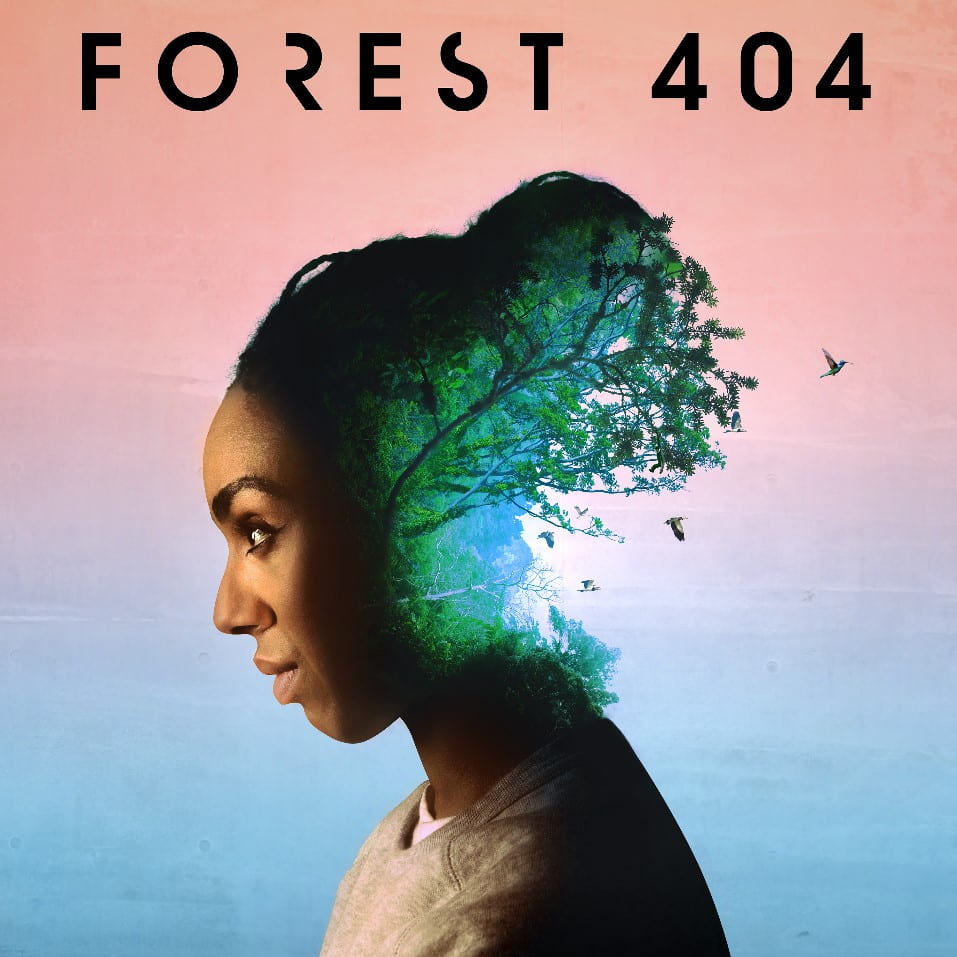Four Bristol alumni take part in BBC Radio 4’s recent ambitious podcast projects, Forest 404 – a 27 part podcast series starring alumna Pearl Mackie. The series is accompanied by a national experiment looking at how listening to natural sounds could boost wellbeing.
The BBC is launching an innovative 27-part sci-fi podcast series, which imagines a futuristic world in which forests have been erased from history. Forest 404 is described as a first for BBC podcasts. Its three-tiered structure creates a new listening experience which aims to draw the audience deeper into the world of the podcast.
At its heart is a classic sci-fi thriller set in the 24th century following a data crash called The Cataclysm. The action follows the character Pan (Mackie), a sound archivist who uncovers some sound recordings from the early 21st century that haunt her. They are recordings of rainforests, places which no longer exist, and Pan feels compelled to hunt down the truth about how the forests of the old world died.
Award-winning writer Timothy X Atack, Becky Ripley, award-winning BBC producer and director, and Pearl Mackie who starred in Dr Who, and Pippa Haywood who starred in Bodyguard and the Green Wing, all read their BA in Theatre and Drama at the University of Bristol. The project is a first for BBC podcasts in that it is part of a wider academic research project too. The series offers an additional dimension to an Arts and Humanities Council (AHRC)-funded project looking at the world of wildlife filmmaking over the last 25 years, particularly the world-famous BBC Natural History Unit in Bristol.
Led by Alexander Smalley, a Virtual Nature Researcher at the University of Exeter, Forest 404: The Experiment hopes to develop a unique insight into how the British public respond to nature-based sounds. Peter Coates, Professor of American and Environmental History from the University of Bristol’s Department of History, is the wildlife filmmaking project’s academic lead.
Professor Coates and his colleagues see the podcast and BBC project as part of an emerging area of academic research – the environmental humanities – whose starting point is the belief that a scientific perspective is not enough to do full justice to our complex and many layered relationships with nature.
About Forest 404: the series
Each of the nine talks is delivered by a wide range of speakers including musicians, biofuturists, bioethicists and anthropologists. They delve into the themes which inspired the drama, such as: “Why should I listen to trees?”, “Would you vote for an AI government?” and “What is death in the digital age?” to explore the real-life ideas which inspired the drama.
The soundscapes designed by Graham Wild and Becky Ripley, which bring each episode of the thriller to life, are mixed to create an immersive 3D experience for the listener. A rainforest symphony, an orchestra of frogs, a montage of whale song and a sonic woodland walk make up some of the sounds of nature which sit alongside more experimental soundscapes as the narrative unfolds.

About Forest 404: The Experiment
The podcasts are accompanied by an ambitious online survey devised and operated by researchers at the University of Exeter and The Open University which hopes to develop a unique insight into how the British public respond to nature-based sounds.
This survey promises to make a major contribution to what we already know about how contact with nature benefits our physical and mental wellbeing. It will contribute new knowledge by exploring how people respond to various sounds of nature; previous research has concentrated on the visual.
Alex Smalley said: “A large body of evidence shows that spending time in natural environments can have positive effects on people’s wellbeing. But we know very little about the importance of sound in this relationship.
Could simply listening to birdsong or waves lapping on the beach be enough to help people recover from a stressful situation? The effects won’t be the same for everyone so we want as many people as possible to take part in this study, helping us uncover what works and why.
Anyone over the age of 18 can take part in the experiment. Participants will be asked to listen to several different sounds and will need to have headphones or speakers at the ready. It’s hoped the study’s findings will form the basis for bringing the benefits of nature to people who might not be able to access them, such as patients in hospital, older people in long term care, or those who work in stressful situations.
Take the survey: https://nquire.org.uk/mission/forest-experiment/contribute
Listen to the series on BBC Sounds: https://www.bbc.co.uk/programmes/p06tqsg3


